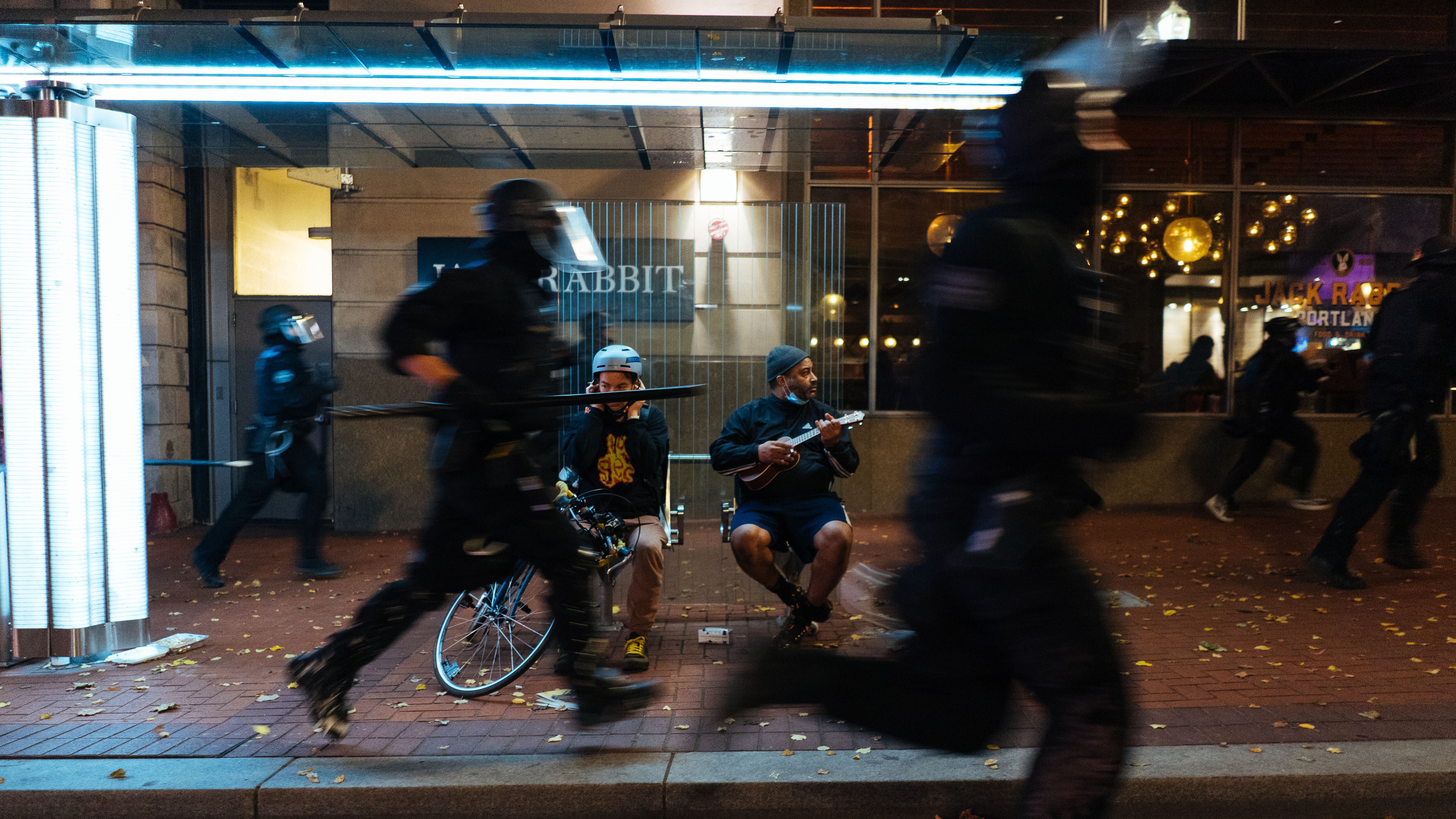A coordinated law enforcement response to a Sept. 26 rally of the Proud Boys received widespread praise for defusing a volatile situation in North Portland. Officers led by Oregon State Police isolated the right-wing group far from most counterprotesters, issued criminal citations to people who brought unlicensed weapons to the event, and successfully ushered most of the visiting militants out of town without incident.
But much of that goodwill dissipated late Saturday night, when the same police used a remarkable amount of force to scatter Black Lives Matter protesters in downtown Portland.
Shortly before midnight, police declared a protest outside the Multnomah County Justice Center an unlawful assembly and began dispersing protesters through the city.
They pushed protesters away from the Justice Center, down various streets in downtown. At times, a line of police officers would sprint through downtown yelling, "Move, move!" to separate and disperse demonstrators throughout the area. Some protesters said they were pepper-sprayed by police as they were forced to run. Others were pushed back with batons as officers rushed toward them.
Police said they were responding to leftist protesters throwing rocks and full drink cans at them. And the crackdown came only three nights after rioters at a Black Lives Matter protest hurled several Molotov cocktails into police lines.
But the aggression of the officers late Saturday drew renewed criticism of police—this time, units deployed by Oregon Gov. Kate Brown.
On Sunday, the American Civil Liberties Union of Oregon called for Brown to appoint an independent prosecutor to look into possible criminal charges against officers.
"Among many abuses, police violently shoved and dispersed journalists, forcefully threw people to the ground, and threatened to destroy the critical supplies of protest medics," said Kelly Simon, interim legal director of the ACLU of Oregon. "We have yet to see most of our government officials reject this form of violence that has long been wreaking havoc in our communities and undermining protected expression."
Saturday's events repeated a dynamic that has played out previously in Portland when right-wing agitators visit the city: In 2017 and 2018, after high-profile alt-right protests drew national media attention to Portland, police squared off with the left-wing groups that came out to confront the visitors. After both days, injured protesters ultimately sued the Portland Police Bureau.

In this case, Brown used her emergency powers to place the Oregon State Police and Multnomah County Sheriff's Office in charge of a coordinated response to the Proud Boys' visit. Among other things, this arrangement allowed officers to use CS gas for crowd control, despite a ban issued by Mayor Ted Wheeler.
In the event, no CS gas was used. Instead, police on Saturday night wielded batons and tackled protesters to the pavement. In one high-profile incident, officers shoved a 73-year-old photographer to the sidewalk.
The Multnomah County Sheriff's Office, for its part, described protester behavior as out of control. "At one point, an officer was attempting to load an arrested person into a transport van when another arrested person, Michael Colten, forced his way out," the sheriff's office said in a press release. "He ran while still restrained in zip-ties for about two blocks before he was recaptured by officers."
WW reporters observed police make targeted arrests for much of the evening, before declaring an unlawful assembly near midnight. At that point, dozens of officers rushed the crowd in a headlong sprint.
"No good cops in a racist system!" the protesters chanted as police made arrests.
At least one person in the streets said he had no intention of ceasing his activism anytime soon.
"Why would you be at home watching TV when you could be out here protesting for change?" said Joseph Richards, 26, who said he's been protesting for the past three months when he doesn't have to work. "The whole system needs to change. I've had police call me the N-word before."

